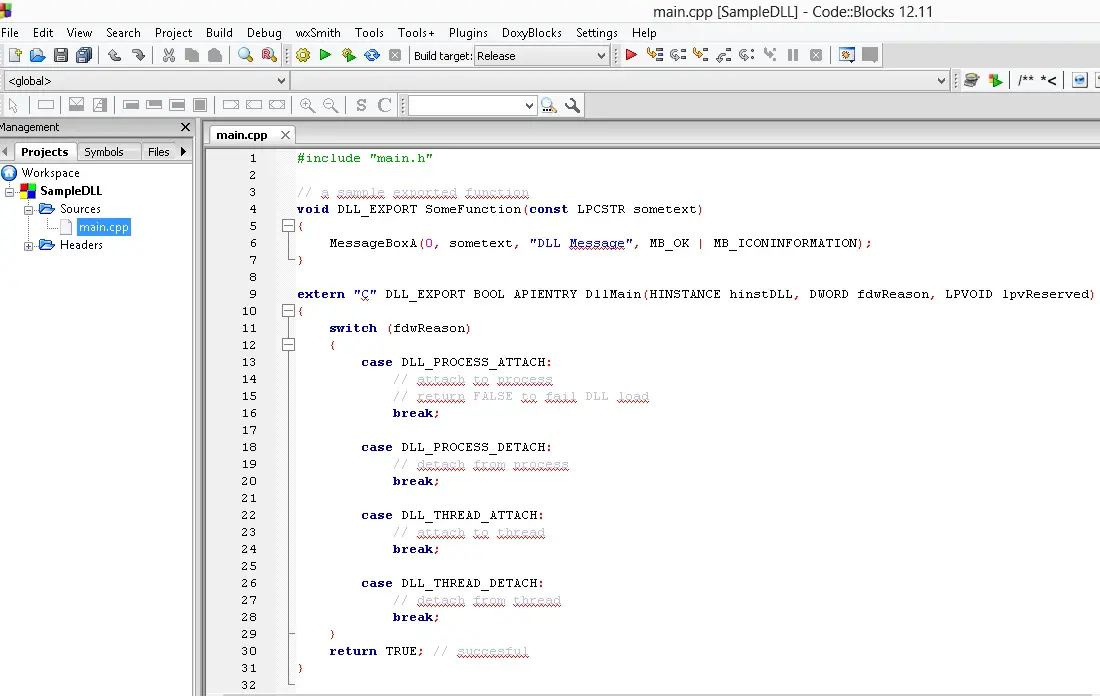How Do You Define Dllexport And Dllimport For Mac
- How Do You Define Dllexport And Dllimport For Machine Learning
- How Do You Define Dllexport And Dllimport For Mac
#define DllExport __declspec( dllexport ) I have made a Test DLL and client does not find the address. // IF I PUT A DEF FILE IN THE DLL PROJECT THEN IT WORKS.

How To Bind C Code with Dotnet Core While you are working with compiled code, you often find yourself in the situation that every bit of performance count (just think about GPU intensive operations or even game engines). For this reason, we often turn back to coding C coding to be as low-level as possible (seeing that writing pure ASM is just too hard). But wouldn’t it be nice if we were able to write C code and interface that through our Dotnet Core application? Well this is the case! Through something called Native Interoperability allowing us to interface with our C code through the. DllImport attribute found in the System.Runtime.InteropServices namespace.
How Do You Define Dllexport And Dllimport For Machine Learning
Let’s start by creating a small example project that makes use of this and will print a simple “Hello World” from our C# code, executed in the C part. Create a folder called “Hello-World-Project”. In “Hello-World-Project” create a new Directory called cpp. In “Hello-World-Project” create a new console dotnet application with the output directory name dotnet (forgot how? Check: ) Building our C Library Since I like building my projects on WSL (Windows Subsystem for Linux), I utilize C compilation through make. Therefore I need to use CMake to compile my C project.
To compile our C project with cmake, start by creating a CMakeLists.txt file. To this file add the following content. # Configure our Required Version cmakeminimumrequired (VERSION 3.0 ) # Define the name of our project project (hello-cpp ) # Define the output library to be a shared file (.so or.dll) and output it as '(lib)hello-cpp.so' addlibrary (hello-cpp SHARED HelloWorld.cpp HelloWorld.h ) We can now configure our project but still need our project files that actually define our “Hello World” method. For this create 2 files called HelloWorld.cpp and HelloWorld.h with the following content: HelloWorld.cpp.
Xavier works as a Cloud Solution Architect at Microsoft, helping its customer unlock the full potential of the cloud. Even though he is still considered a young graduate, he achieved his first success at the age 16, by creating and selling his first startup.
How Do You Define Dllexport And Dllimport For Mac
He then took this knowledge to create and help more startups in different markets such as technology, social media, philanthropy and home care. While in the meantime gaining more enterprise insights at renowned enterprises such as Nokia, Cisco and now Microsoft.
Dllexport, dllimport. 2 minutes to read. Contributors. In this article Microsoft Specific The dllexport and dllimport storage-class attributes are Microsoft-specific extensions to the C and C languages. You can use them to export and import functions, data, and objects to or from a DLL.
Syntax declspec( dllimport ) declarator declspec( dllexport ) declarator Remarks These attributes explicitly define the DLL's interface to its client, which can be the executable file or another DLL. Declaring functions as dllexport eliminates the need for a module-definition (.def) file, at least with respect to the specification of exported functions. The dllexport attribute replaces the export keyword. If a class is marked declspec(dllexport), any specializations of class templates in the class hierarchy are implicitly marked as declspec(dllexport).
This means that class templates are explicitly instantiated and the class's members must be defined. Dllexport of a function exposes the function with its decorated name. For C functions, this includes name mangling. For C functions or functions that are declared as extern 'C', this includes platform-specific decoration that's based on the calling convention. For information on name decoration in C/C code, see.
No name decoration is applied to exported C functions or C extern 'C' functions using the cdecl calling convention. To export an undecorated name, you can link by using a Module Definition (.def) file that defines the undecorated name in an EXPORTS section. For more information, see. Another way to export an undecorated name is to use a #pragma comment(linker, '/export:alias=decoratedname') directive in the source code.
When you declare dllexport or dllimport, you must use and the declspec keyword. Example // Example of the dllimport and dllexport class attributes declspec( dllimport ) int i; declspec( dllexport ) void func; Alternatively, to make your code more readable, you can use macro definitions: #define DllImport declspec( dllimport ) #define DllExport declspec( dllexport ) DllExport void func; DllExport int i = 10; DllImport int j; DllExport int n; For more information, see:. END Microsoft Specific See also Feedback.